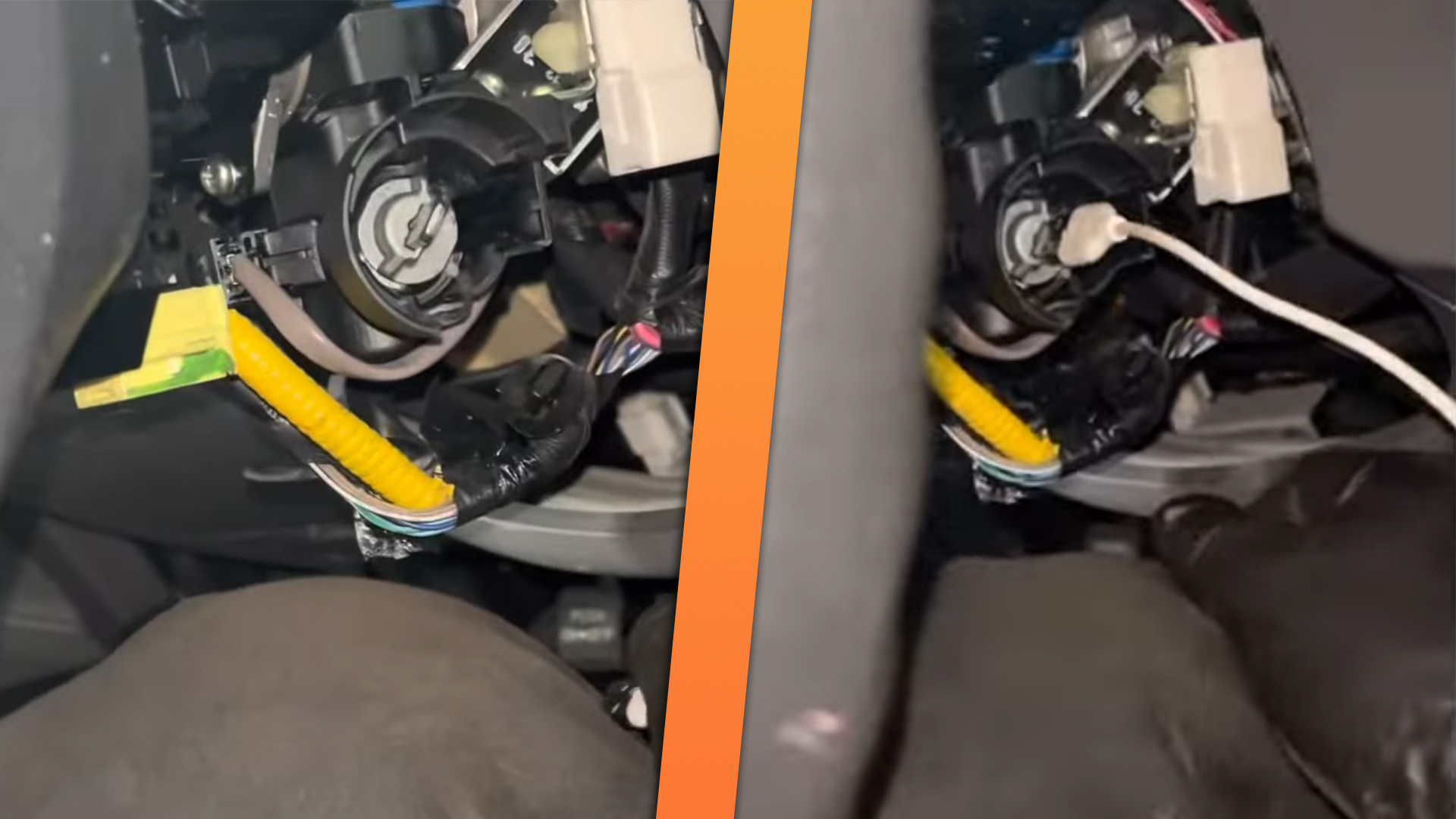

Thieves across the United States are eyeing Hyundai and Kia models as easy targets thanks in part to viral social media posts. Essentially, if it’s a modern car from one of those automakers that doesn’t utilize push-button start, they can fire up the car and drive away in less than a minute. The only tool required is something that can be found in just about every vehicle: a USB charger.
An uptick in thefts for both brands has been recorded in several states over the past year. This tracks with the increased number of people watching and sharing videos of the Milwaukee-based “Kia Boyz” whipping around in stolen Korean cars.
Videos—many of which have since been removed—reveal exactly how they’re going about it, and it involves peeling back the steering column cover and dismantling the key slot. A USB cable can then be used to turn the ignition tumbler, start the vehicle, and release the steering lock. In turn, this allows the Hyundai or Kia to be driven away and started again at any time using the same cable. The thieves specifically target Korean vehicles with a physical key slot as push-button start models can’t be bypassed as easily.
Vehicles that utilize a physical key fall victim to this method because they reportedly aren’t equipped with a factory-installed anti-theft device called an immobilizer. These immobilizers use a chip (called a transponder) to authenticate a key against a vehicle’s ECU. This means that even if a thief has copied the physical cuts on a key, the vehicle can’t be started unless the transponder has been paired with the vehicle. Because the susceptible Hyundai and Kia vehicles allegedly do not have an immobilizer, the thieves are able to simply force the ignition cylinder as if they were using a screwdriver to perform the same trick on a car from the 1980s.
Spokespeople for Hyundai and Kia say that 2022 models are immune to the method. That said, thefts of current cars have still been reported by various news outlets. It’s unlikely that a would-be thief would know a 2022 from a 2021 when there aren’t any styling changes, so owners may still be targeted and vandalized even if thieves are unable to drive away.

While Milwaukee isn’t the only city affected by the rise in thefts, it’s undoubtedly one of the worst. In fact, Korean cars represent more than two-thirds of all vehicle thefts in the city, and they’ve increased 2,500 percent year over year. Milwaukee has even considered taking Hyundai and Kia to court over the matter, as city alderman Michael Murphy told WISN it has “a real detrimental impact on the quality of life for [its] citizens.” Last June, a separate class-action lawsuit was filed under seal against the automakers and their parent company claiming that its vehicles are manufactured with sub-par security measures.
Owners of affected Hyundais and Kias may want to consider an added layer of security to prevent this from happening. For example, they may choose to purchase an aftermarket immobilizer system or wheel lock like a club. While this certainly doesn’t fix the underlying problem, it does help by deterring would-be crimes of opportunity.
Got a tip or question for the author? Contact them directly: rob@thedrive.com